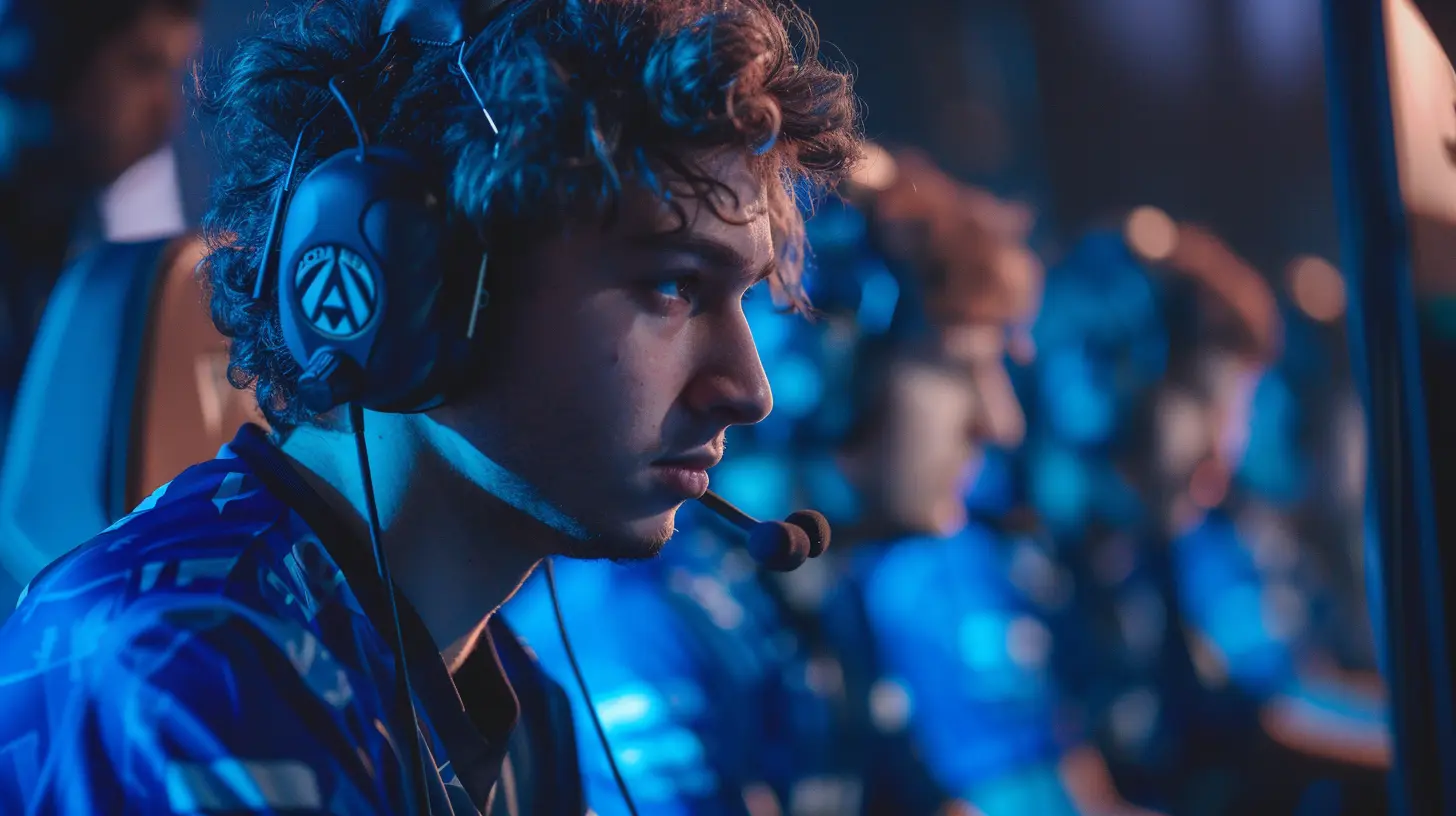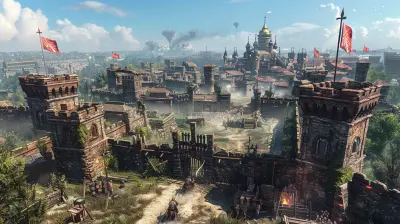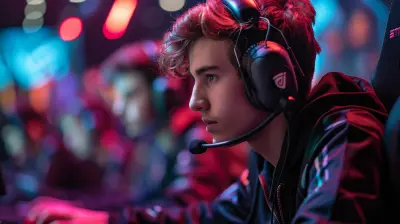The Rise of Regional Esports Teams in Global Competitions
2 May 2025
Esports has exploded over the last couple of decades, transforming from a niche pastime into a worldwide phenomenon. But let’s be honest – we all saw this coming, right? When you combine the thrill of competition with the universal appeal of gaming, it’s bound to create something extraordinary. What’s truly fascinating, though, is how the esports scene is shifting. There’s been a significant rise in regional esports teams making waves in global tournaments, and honestly, this shift has added a vibrant layer to an already exciting industry.
Now, if you’ve ever wondered how local teams from countries you might not associate with competitive gaming are suddenly snatching trophies or dominating storylines, you're not alone. Let’s dig into this trend and figure out what it means for esports as a whole. Why are these regional teams rising? What sets them apart? And more importantly, how does this shake up the global landscape? Buckle up, because we’re diving deep into the world of competitive gaming.
A New Era of Esports: From Local to Global
Esports started out as a grassroots movement, with local tournaments offering pizza-money prizes and bragging rights to the winners. Fast forward to today, and we’re talking about multi-million-dollar events staged in packed arenas, complete with roaring fans and massive streaming audiences. The spotlight, however, wasn’t always so diverse.For the longest time, global competitions were dominated by teams from a handful of regions – think South Korea, China, Europe, and North America. (South Korea, in particular, was practically untouchable in games like StarCraft and League of Legends.) But things have changed. These days, you see teams from Southeast Asia, Latin America, the Middle East, and even smaller European nations stepping up and making their mark on the big stage. It feels like a sports movie where the underdog gets their moment – and who doesn’t love a good underdog story?
Why Are Regional Esports Teams Rising?
So, what’s fueling this growth of regional esports teams? It’s not magic – there’s a combination of factors at play. Let’s break it down.1. Improved Infrastructure and Accessibility
First up, gaming has become way more accessible than it used to be. Faster internet, cheaper gaming gear, and widespread access to platforms like Twitch and YouTube have allowed players from smaller regions to showcase their skills. Many countries have also made significant investments in their gaming infrastructure. Take Southeast Asia, for instance. Governments and private investors are pouring money into setting up esports leagues, training facilities, and gaming schools. This allows local talent to sharpen their skills without needing to migrate to more developed regions.2. Support from Local Organizations
When regional teams have strong support networks, it’s a game-changer. Esports organizations in emerging markets are stepping up to create opportunities for local players. They identify raw talent, provide coaching, and even cover living expenses – giving players the freedom to focus entirely on the game. It’s like finding a hidden gem, polishing it, and letting it shine on the world stage.For example, teams like Talon Esports (from Hong Kong) and Riyadh Scorpions (from the Middle East) have been backed by sponsors who truly believe in their potential. And guess what? That belief translates into better performances on the global stage.
3. The Power of Community and Representation
Let’s face it – esports fans are wildly passionate. When a regional team rises, it’s not just the players who are stepping up, but entire communities rallying behind them. These teams often carry the pride of their region, and that energy is palpable when they compete. For fans, it’s no longer about watching yet another North American vs. European matchup. Seeing their own region represented on the global stage adds fire to their fandom.A great example? The rise of OB.Neon, a Filipino Dota 2 team, didn’t just energize its home country but gained fans around the world for their scrappy underdog spirit and unique playstyle.
The Impact of Regional Teams on Global Esports
Alright, so these regional teams are here – but what’s the bigger picture? How are they changing global competitions and the esports ecosystem overall?1. More Diverse Playstyles
One of the coolest things about regional teams stepping into the limelight is the diversity they bring. Different regions tend to approach games in unique ways – call it esports dialects if you will. Some regions prioritize high-risk, high-reward gameplay, while others focus on methodical, calculated strategies. When these styles clash on the global stage, it’s a thrill to watch. It’s like putting spice in an already delicious dish – it makes everything a lot more exciting.2. New Fanbases, New Markets
The rise of regional teams is also opening up new markets for esports. With local heroes to root for, fans from places like Brazil, Vietnam, and Saudi Arabia are engaging more actively with the global esports scene. This means better opportunities for sponsors, more partnerships, and – let’s be honest – more money flowing into the industry. When everyone gets a piece of the pie, the entire ecosystem benefits.3. Leveling Up Competition
Gone are the days when the same handful of teams dominated year after year. With regional teams stepping up, established giants are being challenged like never before. This forces every team to level up their game. It's a classic case of "the more the merrier" – more competition means everyone has to work harder to stay at the top.
Challenges Faced by Regional Teams
Of course, it’s not all sunshine and rainbows. Climbing to the global stage isn’t easy, especially for regional teams. They often face unique hurdles, such as:- Limited Resources: Teams from smaller regions may struggle with funding, facilities, or even access to international tournaments due to travel constraints.
- Cultural Barriers: Competing on a global stage means dealing with different languages, time zones, and even gamer culture. It’s not always an easy adjustment.
- Exposure to Experienced Teams: Let’s be real – facing off against legendary teams like T1 or G2 Esports can be intimidating for newcomers. The learning curve is steep.
That said, these teams have shown incredible resilience, and overcoming adversity is part of what makes their stories so compelling.
The Future of Regional Esports Teams
So, what’s next? If current trends are anything to go by, regional teams are only going to grow stronger. With more governments recognizing esports as legitimate sports, more schools offering esports scholarships, and more investors jumping into the scene, this is just the beginning.Imagine a world where every corner of the globe has a stake in esports – where a team from Nigeria, Peru, or Mongolia can win a world championship. That’s where this is heading. It’s not just a competition anymore; it’s becoming a truly global celebration of talent.
What This Means for Fans
If you’re an esports fan, this rise of regional teams only benefits you. More diversity means more compelling storylines, more unpredictable matches, and new players you can root for. Whether you’re a die-hard fan of a big-name team or someone who loves supporting the underdog, there’s something for everyone here. And let’s be real – there’s nothing quite like seeing a new team rise to glory. It’s the stuff goosebumps are made of.Final Thoughts
The rise of regional esports teams in global competitions isn’t just a trend – it’s a massive shift that’s changing the industry for the better. These teams bring fresh perspectives, unique playstyles, and the kind of passion that makes esports so electrifying. Sure, they face challenges, but their grit and determination are what set them apart. As the esports scene continues to grow and evolve, one thing’s clear: the future belongs to everyone, not just a select few.So the next time you tune into a major tournament, keep an eye out for those underdog teams from regions you may not have noticed before. Chances are, they’ll surprise you.
all images in this post were generated using AI tools
Category:
Esports TeamsAuthor:

Lucy Ross
Discussion
rate this article
5 comments
Lena Gutierrez
Oh great, because nothing says “world domination” like a group of gamers from different regions trying to out-click each other. Who knew local pride could be so… globally mediocre? Bravo, everyone!
May 9, 2025 at 3:34 PM

Lucy Ross
Thank you for your comment! It’s interesting how regional pride can manifest in unique ways within esports, showcasing diverse talents on a global stage.
Sarah Wolfe
Regional esports teams are redefining the competitive landscape, proving that talent knows no boundaries. As they rise to prominence on global stages, they inspire countless players and fans alike. This is more than just a game; it's a movement, driving innovation and unity in the spirit of competition. Let’s rise together!
May 8, 2025 at 2:51 AM

Lucy Ross
Thank you for your insightful comment! It's inspiring to see how regional esports teams are reshaping the competitive landscape and fostering unity among players and fans worldwide. Let's continue to support this movement together!
Colt Bass
The emergence of regional esports teams in global competitions reflects a significant shift in the gaming landscape. This trend not only fosters local talent but also enhances diversity in gameplay strategies, ultimately enriching the competitive environment and broadening the appeal of esports worldwide.
May 7, 2025 at 4:09 AM

Lucy Ross
Thank you for your insightful comment! I completely agree—regional esports teams play a crucial role in diversifying the competitive landscape and showcasing local talent on a global stage.
Mara Vance
Great article! It's exciting to see regional esports teams gaining recognition and competing on the global stage. This growth is inspiring!
May 6, 2025 at 3:19 PM

Lucy Ross
Thank you! I'm glad you found the article inspiring; the growth of regional esports teams is indeed thrilling!
Soraya Black
The ascent of regional esports teams in global competitions is nothing short of revolutionary! These local powerhouses are breaking barriers, showcasing untapped talent, and proving that geography does not define greatness. Let’s celebrate this exciting era that empowers diverse players to shine on the world stage!
May 4, 2025 at 3:30 AM

Lucy Ross
Thank you for your insightful comment! I completely agree—regional esports teams are indeed reshaping the competitive landscape and highlighting the incredible talent that exists worldwide. It's an exciting time for the esports community!
MORE POSTS

Steam Achievements vs. Trophies: What’s the Impact on Modern Gaming?

The Science Behind Why Game Music Stays in Our Heads

Breaking Down Enemy Fortifications: Siege Strategies for Ultimate Victory

New Patch Brings Fresh Strategies for Long-Time Players

Inside the World of Talent Scouts and Esports Team Recruitment